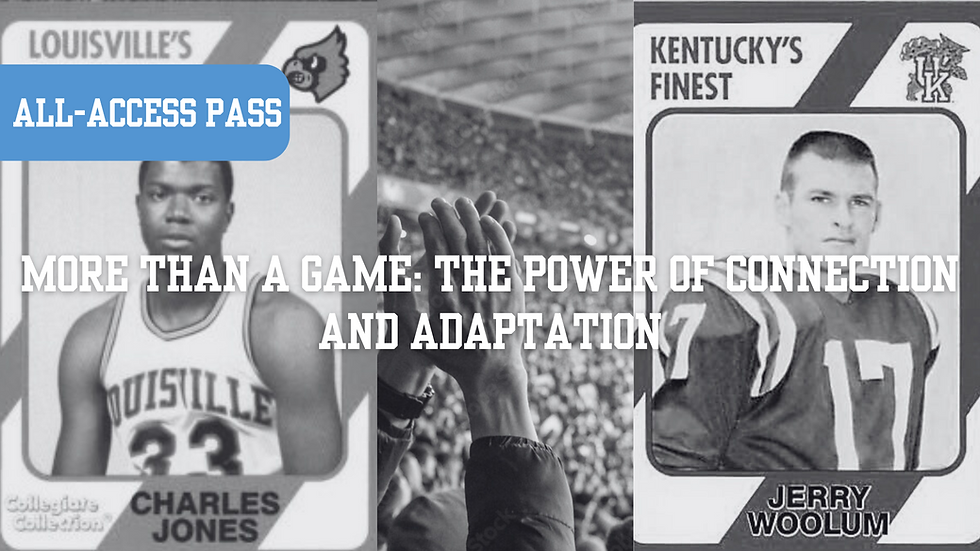More Than a Game: The Power of Connection and Adaptation
- kentuckysportsmemo
- Jul 9, 2025
- 3 min read

Finding Talent in Unexpected Places
Charles Jones’ path from Scuba, Mississippi—a small, tightly-knit town with limited resources—to playing basketball at the University of Louisville is a powerful example of how athletic talent can emerge from the most unlikely places. Raised in a family where basketball served as both recreation and a bonding tool, Jones developed his skills without access to the high-end training facilities common today. His story emphasizes that raw ability, when nurtured in a strong community environment, can flourish even in the absence of exposure or infrastructure.
When Opportunity Meets Preparedness
Back in the days before digital scouting and nationwide recruiting databases, exposure often came through luck and timing. For Jones, his breakthrough came when a coach from Louisiana happened to see him play on a loosely organized AAU team. This encounter gave him the visibility he needed to attract college attention, despite coming from a place that rarely produced Division I athletes. His journey serves as a reminder that, while talent matters, access to opportunity can be just as critical in shaping a young athlete’s future.
Choosing Louisville Through Personal Connection
Although Charles Jones had scholarship offers from closer and arguably more familiar programs like Mississippi State and Alabama, his decision to attend the University of Louisville was guided by something less tangible: personal connection. During his visit, he quickly bonded with the players, feeling an ease and familiarity that reminded him of home. This sense of belonging played a pivotal role in his decision-making process, illustrating how relationships and trust often carry more weight than brand recognition or geographic convenience.
The Role of Team Chemistry in Recruiting
Jones’ choice to join Louisville speaks volumes about the importance of team dynamics in collegiate sports. He wasn’t just looking for a place to play basketball—he was seeking a sense of family and shared purpose. Coaches often emphasize facilities, accolades, and winning records, but Jones’ experience highlights that recruits are just as influenced by how a team feels. The emotional resonance of a welcoming environment can be a deciding factor, particularly for players coming from tight-knit communities.
Reinventing Purpose: Jerry Woolum’s Second Career
Jerry Woolum presents a striking example of career adaptability and longevity. Jerry Woolum’s transition from University of Kentucky quarterback to a respected surgeon illustrates a different kind of journey—one centered on adaptability and lifelong commitment. Even in his 80s, Woolum continues to work part-time in medicine, having recently scaled back to minor procedures due to health limitations. His willingness to evolve with time, while still contributing to his field, showcases a mindset that values purpose over prestige. His story stands as a blueprint for how passion can guide a fulfilling career long after athletic competition ends.
Lasting Lessons in Legacy and Dedication
Though their stories differ in setting and profession, Charles Jones and Jerry Woolum share common threads: adaptability, deep personal connection, and a long-standing dedication to their chosen paths. Jones’ reflections on his time at Louisville, especially during iconic moments like the “dream game” against Kentucky, underscore how sports can shape personal identity and collective memory. Meanwhile, Woolum’s ongoing service in medicine is a testament to the value of resilience and reinvention. Together, they remind us that success is not about where you start, but how you stay committed and connected along the way.
Learn more about the legendary Charles Jones -> Click HERE
Missed the full story about former UK football star Jerry Woolum who is an active surgeon now? HERE is where you can watch it!








Comments